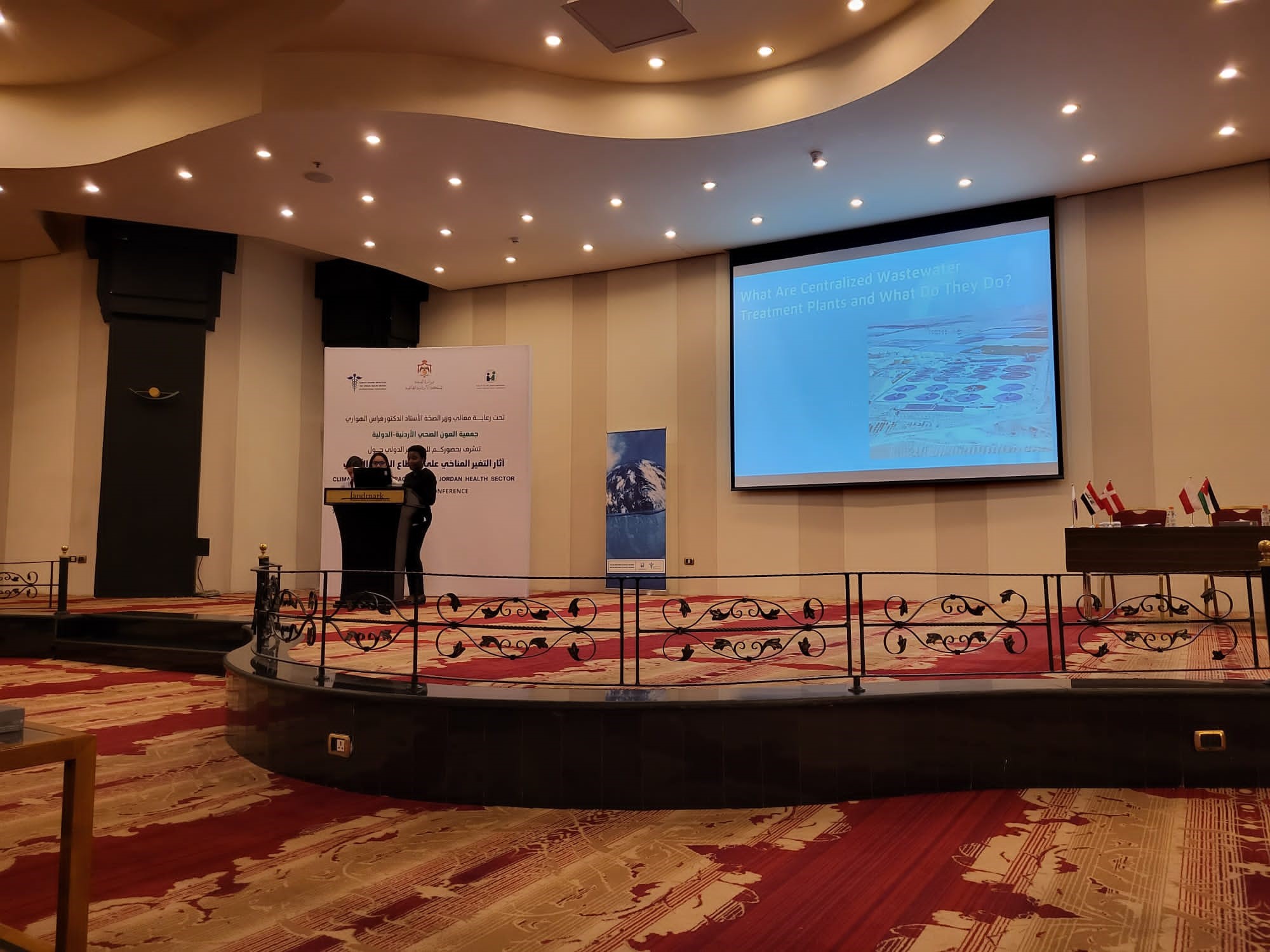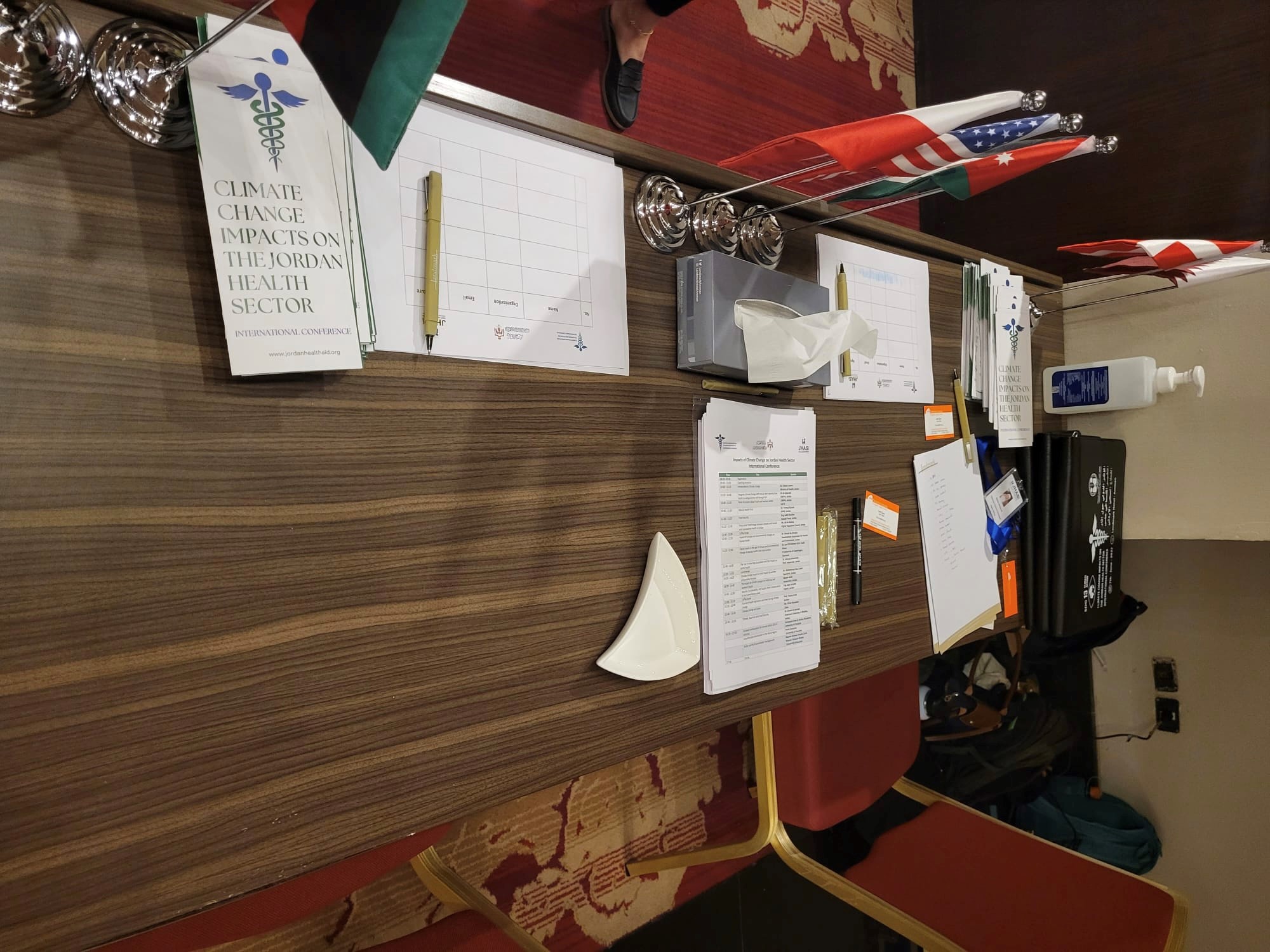
Climate Change and Health Conference
On June 7th, Jordan Health Aid Society (JHASi) hosted an international conference with the Jordanian Ministry of Health. This conference, one of the first of its kind in the MENA region, focused on the impact of climate change on health in Jordan. Our cohort worked together with JHASi for months to research and plan for the conference. A number of researchers, students, and representatives from the public and private sectors attended. The goal of the conference was to increase awareness and promote discussions of climate change in the MENA region. We wanted this conference to be one that had legitimate recommendations and action steps for everyone to take.
While working to prepare for the conference, I picked up on the difference in work culture between the US and Jordan. The work culture in Jordan is much more relaxed and flexible. What stood out to me the most was that Jordanians are okay with not doing something all the time. In the US, we are incredibly focused on being busy at all times. I remember one of my classmates pointed out that even if she has finished all her work for the day, she would try to look busy while sitting in her cubicle. I think there is a lot of social pressure within the US work culture to always look busy and working. I can relate to this especially when I completed an internship last summer – I would get frustrated when I had nothing to do. I’ve spent these past few weeks adapting to Jordanian work culture and I think I will experience reverse culture shock when I go back to the US. Jordanian work culture has taught me to be more relaxed and I appreciate that even if it seems that people are not actively working all day, quality work still gets done. I will have to work on getting used to American work culture again; hopefully, the transition will be manageable.
Most of the conference was in Arabic, which made it ever more important to not only pay attention to the speakers but also gauge the reactions/responses of the audience. Jordanians talk a lot with their hands. I’ve learned to pay attention to body language and hand gestures a lot while in Jordan because I am not fluent in Arabic. I’ve also learned that spoken word is just one way of communicating; there are many other ways that people communicate with each other and despite the language barrier, I am still able to get around in Amman. The conference was a great opportunity to interact with Jordanians and people from other countries in the region. I practiced the minimal Arabic I knew and made some great connections with NGO reps and presenters. Now that the conference is over, I am eager to continue working with JHAS and helping them implement the recommendations from the conference.

